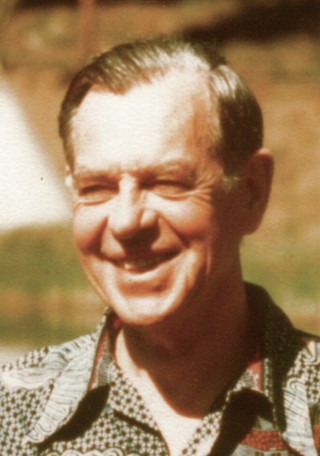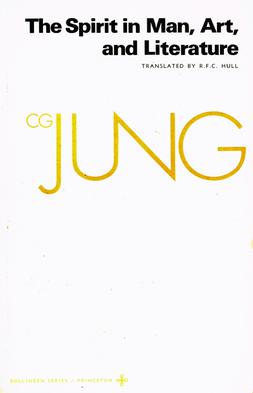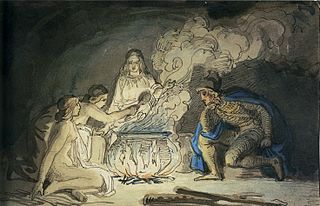Related Research Articles

Joseph John Campbell was an American writer. He was a professor of literature at Sarah Lawrence College who worked in comparative mythology and comparative religion. His work covers many aspects of the human experience. Campbell's best-known work is his book The Hero with a Thousand Faces (1949), in which he discusses his theory of the journey of the archetypal hero shared by world mythologies, termed the monomyth.

Analytical psychology is a term coined by Carl Jung, a Swiss psychiatrist, to describe research into his new "empirical science" of the psyche. It was designed to distinguish it from Freud's psychoanalytic theories as their seven-year collaboration on psychoanalysis was drawing to an end between 1912 and 1913. The evolution of his science is contained in his monumental opus, the Collected Works, written over sixty years of his lifetime.
Mythopoeia, or mythopoesis, is a subgenre of speculative fiction, and a theme in modern literature and film, where an artificial or fictionalized mythology is created by the writer of prose, poetry, or other literary forms. The concept was widely popularised by J. R. R. Tolkien in the 1930s, although it long preexisted him. The authors in this genre integrate traditional mythological themes and archetypes into fiction. Mythopoeia is also the act of creating a mythology.

In narratology and comparative mythology, the hero's quest or hero's journey, also known as the monomyth, is the common template of stories that involve a hero who goes on an adventure, is victorious in a decisive crisis, and comes home changed or transformed.

Walter Arnold Kaufmann was a German-American philosopher, translator, and poet. A prolific author, he wrote extensively on a broad range of subjects, such as authenticity and death, moral philosophy and existentialism, theism and atheism, Christianity and Judaism, as well as philosophy and literature. He served more than 30 years as a professor at Princeton University.

James Hillman was an American psychologist. He studied at, and then guided studies for, the C.G. Jung Institute in Zürich. He founded a movement toward archetypal psychology and retired into private practice, writing and traveling to lecture, until his death at his home in Connecticut.
Depth psychology refers to the practice and research of the science of the unconscious, covering both psychoanalysis and psychology. It is also defined as the psychological theory that explores the relationship between the conscious and the unconscious, as well as the patterns and dynamics of motivation and the mind. The theories of Sigmund Freud, Carl Gustav Jung, and Alfred Adler are all considered its foundations.
Archetypal psychology was initiated as a distinct movement in the early 1970s by James Hillman, a psychologist who trained in analytical psychology and became the first Director of the Jung Institute in Zürich. Hillman reports that archetypal psychology emerged partly from the Jungian tradition whilst drawing also from other traditions and authorities such as Henry Corbin, Giambattista Vico, and Plotinus.

Richard Theodore Tarnas is a cultural historian and astrologer known for his books The Passion of the Western Mind: Understanding the Ideas That Have Shaped Our World View and Cosmos and Psyche: Intimations of a New World View. Tarnas is professor of philosophy and psychology at the California Institute of Integral Studies, and is the founding director of its graduate program in Philosophy, Cosmology, and Consciousness.

Mythago Wood is a fantasy novel by British writer Robert Holdstock, published in the United Kingdom in 1984. Mythago Wood is set in Herefordshire, England, in and around a stand of ancient woodland, known as Ryhope Wood. The story involves the internally estranged members of the Huxley family, particularly Stephen Huxley, and his experiences with the enigmatic forest and its magical inhabitants. The conception began as a short story written for the 1979 Milford Writer's Workshop; a novella of the same name appeared in the September 1981 edition of The Magazine of Fantasy & Science Fiction.

Michael J. Meade is an American author, mythologist, storyteller, and was a figure in the Men's Movement of the 1980s. Having distanced himself from the Men's Movement, he continues to publish and teach to a broader audience.
The idea of polytheistic myth as having psychological value is one theorem of archetypal psychology as defined by James Hillman, and explored in current Jungian mythology literature. According to proponents of this theory, polytheistic myths can provide psychological insight.

The Collected Worksof C. G. Jung is a book series containing the first collected edition, in English translation, of the major writings of Swiss psychiatrist Carl Gustav Jung.

There are three central ideas in Sufi Islamic psychology, which are the Nafs, the Qalb (heart) and the Ruh (spirit). The origin and basis of these terms is Qur'anic and they have been expounded upon by centuries of Sufic commentaries.
Bogoljub Šijaković is a Serbian scholar, Professor of Philosophy at the Faculty of Orthodox Theology, University of Belgrade (Serbia) and Professor of Greek Philosophy at the Faculty of Philosophy in Nikšić (Montenegro). He served as the Minister of Religious Affairs in the Federal Government of Yugoslavia (2000–2002) and in the Government of the Republic of Serbia (2008–2011).

Myth is a genre of folklore consisting primarily of narratives that play a fundamental role in a society. For scholars, this is very different from the vernacular usage of the term "myth" that refers to a belief that is not true. Instead, the veracity of a myth is not a defining criterion.
Nor Hall. Hall is a post-Jungian psychotherapist and author. Her work focuses on archetypal studies, particularly gender issues and cultural mythology.

William G. Doty (1939–2017) was an American religious studies scholar and educator. He is an author and editor known for his writings about myth and mythology.

Edward S. Casey is an American philosopher and university professor. He has published several volumes on phenomenology, philosophical psychology, and the philosophy of space and place. His work is widely cited in contemporary continental philosophy. He is currently distinguished professor emeritus of philosophy at Stony Brook University in New York and distinguished visiting faculty at Pacifica Graduate Institute.
References
- ↑ "MP Review: Dennis Patrick Slattery, Chris Paris The Beauty Between words". Mythopoetry. Reviewed by: Elizabeth Terzian
- 1 2 "GRACE IN THE DESERT: Awakening to the Gifts of Monastic Life". Publishers Weekly.
- ↑ Joseph V. Ricapito (2007). Consciousness and Truth in Don Quijote and Connected Essays. Juan de la Cuesta. p. 133. ISBN 978-1-58871-112-0.
- ↑ The Best Books for Academic Libraries: Language and literature . Best Books, Incorporated. 1 September 2002. p. 120. ISBN 978-0-7222-0013-1.
- ↑ "BOOK REVIEW : Riting Myth, Mythic Writing: Plotting Your Personal Story. (2012)". Charles W. Asher Psychological Perspectives: A Quarterly Journal of Jungian Thought, Volume 55, Issue 4, 2012pages 494-495
- ↑ Carol E. Henderson (2002). Scarring the Black Body: Race and Representation in African American Literature . University of Missouri Press. pp. 8–. ISBN 978-0-8262-6289-9.
- ↑ Angela Smith (20 December 2011). Hideous Progeny: Disability, Eugenics, and Classic Horror Cinema. Columbia University Press. pp. 139–. ISBN 978-0-231-52785-9.
- ↑ Where Grace May Pass: A Poetics of the Body. 2007. pp. 96–. ISBN 978-0-549-86493-6.
- ↑ Michael Glock (July 2004). Raisin Bread Toast: And Other Collected Tales of Fantastica. iUniverse. pp. 45–. ISBN 978-0-595-32138-4.
- ↑ "Grace in the Desert Awakening to the Gifts of Monastic Life By Dennis Patrick Slattery ". Spirituality and Practice, Book Review by Frederic and Mary Ann Brussat.
- ↑ University of Toronto. Dept. of Italian Studies (2004). Rivista di studi italiani: RSI. A. Verna. pp. 16, 17.
- ↑ "MP Book Review: Reimagining Education: Essays on Reviving the Soul of Learning". by Stephanie Page, Mythopoetry.